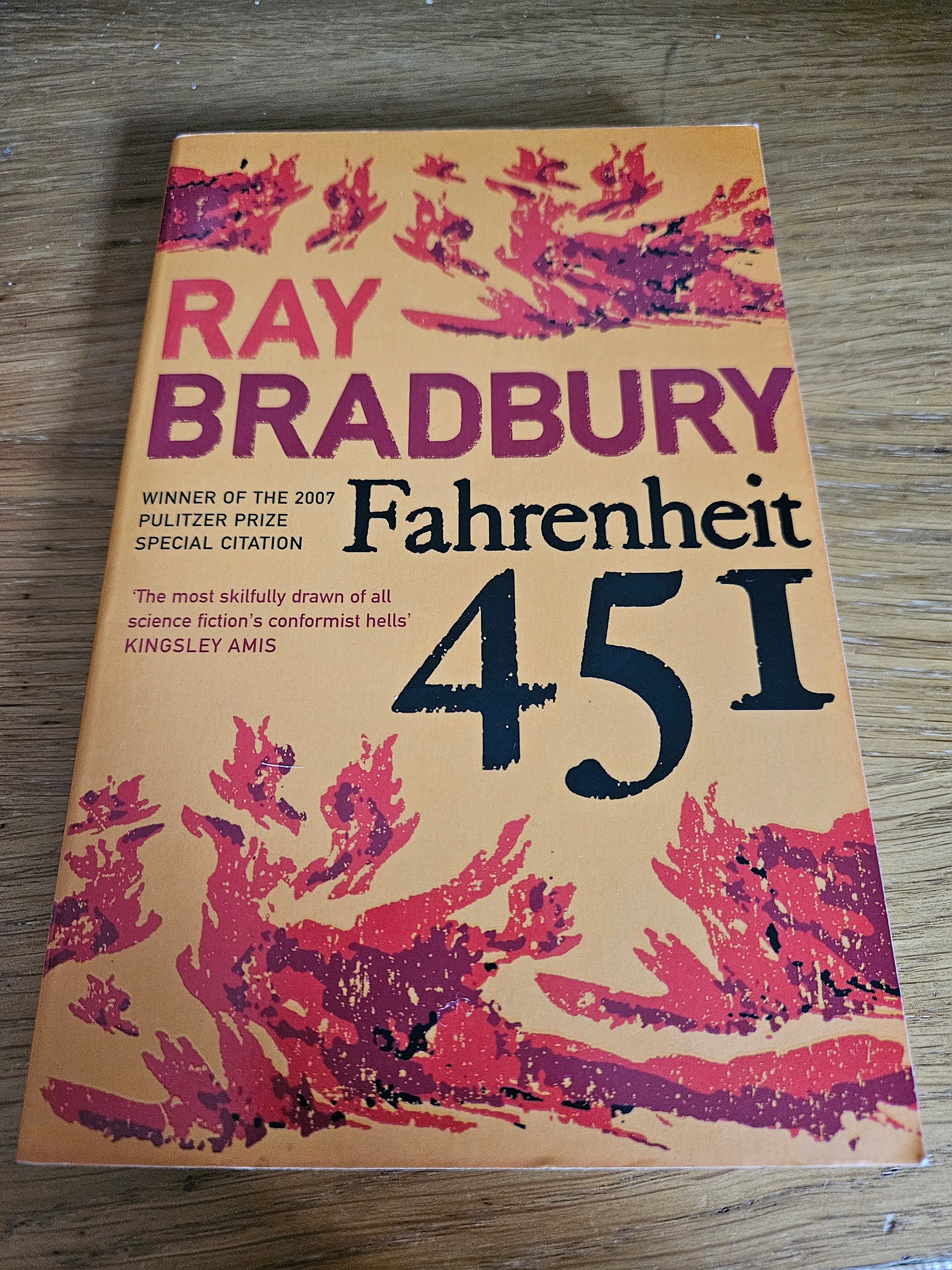Fahrenheit 451: Closer and Closer to Reality

I had the absolute pleasure of reading Ray Bradbury's Fahrenheit 451 this month. This has been one of the first books I've read in a long while that I've felt had so many parallels we can draw to our current reality so much so that it's encouraged me to note down my own thoughts here. It should be known that I haven't written critically since high school and also I've not read any reviews or opinions about the book barring the introduction and afterword. I'd like to think that the thoughts expressed here are my own :)
Hyperstimulation: Is Media a Drug?
Bradbury certainly posits this idea throughout the book. Take for example Mildred, our protagonist's wife, who is eternally engaging in escapism via some form of digital entertainment. Be this the parlour with its family made of screens or listening to her 'Sea-shell ear thimbles' (Bradbury's prediction of bluetooth earbuds). The negative impact this then has includes isolation both from family and wider society and also depression. It's mentioned that she can barely remember anything about how she and Montag first met and both characters feel as though they've been living with a stranger throughout their marriage.
For me, I felt this really related to the relationship I myself have with various forms of social media and especially short form content. There's an overabundance of it that makes it so easy to just zombify yourself. I find myself with my own 'ear thimbles' glued to me or with a video playing in the background as though every waking moment needs to be filled. Despite no mention of meditation or mindfulness, I felt that the book advocates for both. Montag needed to look internally to discover he was truly unhappy otherwise he would have carried on burning books.
Captain Beatty: Charlatan and Grifter
I want to touch on the character of Captain Beatty and try to relate him to an equivalent I see frequently today, the grifter. He's well versed in literature despite being the captain of an team of book burners and uses this knowledge to intellectually beat down Montag and the rest of his crew into submission. He strikes me as being the ultimate conformist. One who is so steadfast in their support and belief in the status quo that even with the knowing the arguments against he still settles for a cushy role as captain.
There's many who fit that bill today. People who despite knowing the moral and virtuous thing to do will conform to whoever is above and try to make the system work for them to the detriment of those around them. It's so clear that they have access to more opportunities and freedom while limiting the rest of us. In the case of Beatty, the man is clearly reading secretly to sharpen his rhetoric.
Key Takeaways
I'd like to finish on a few points this wonderful book has brought to my attention and how I feel I could apply them in my own life:
- Mindfulness - A cliche but it definitely feels harder and harder to concentrate and not allow overstimulation and overconsumption take over. The resolution for me is probably as simple as continuing to practice meditation and value real connection
- Conformity and remaining critical - this book is certainly a reminder to always remain critical and not just trust one source. I haven't learnt much new here as I like to think I am fairly critical but it's a good reminder nonetheless
- Contribution - As Montag says "We need to be really bothered once in while" and really I took that as a direct accusation. I am someone who can quite easily wallow in apathy but would very much like to contribute more to causes I believe in. I'd like to think this blog is one such attempt at contribution rather than passive consumption.